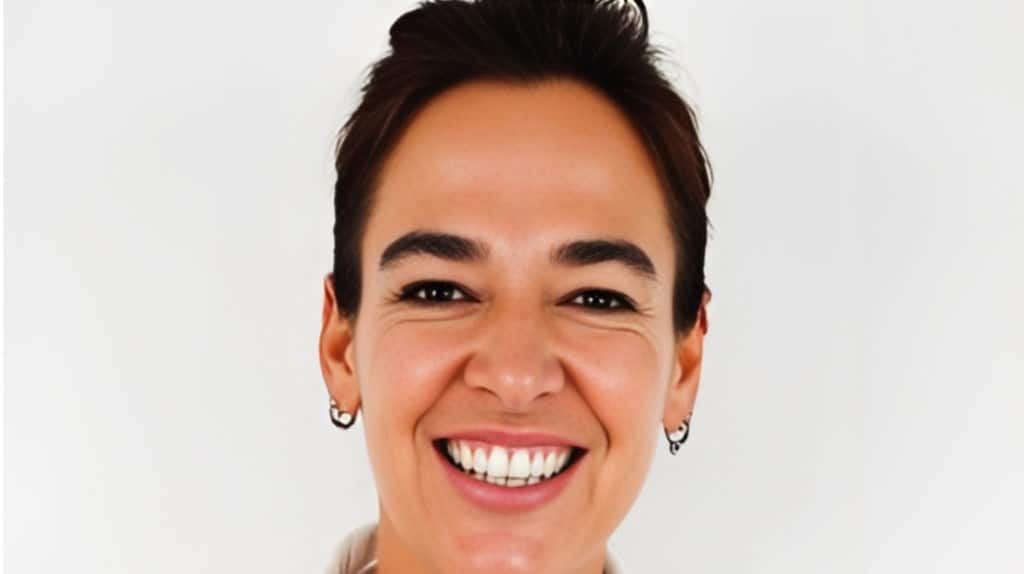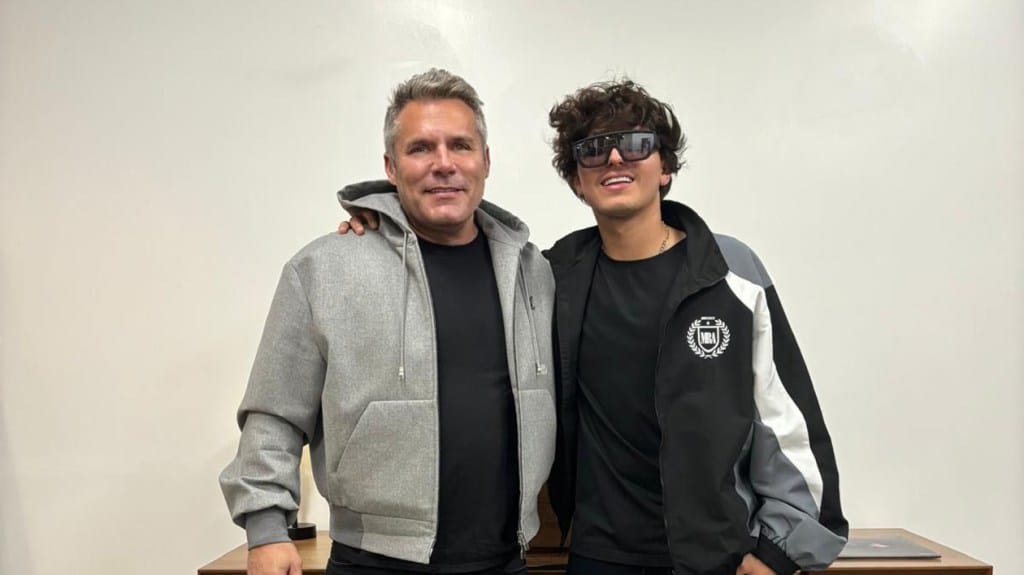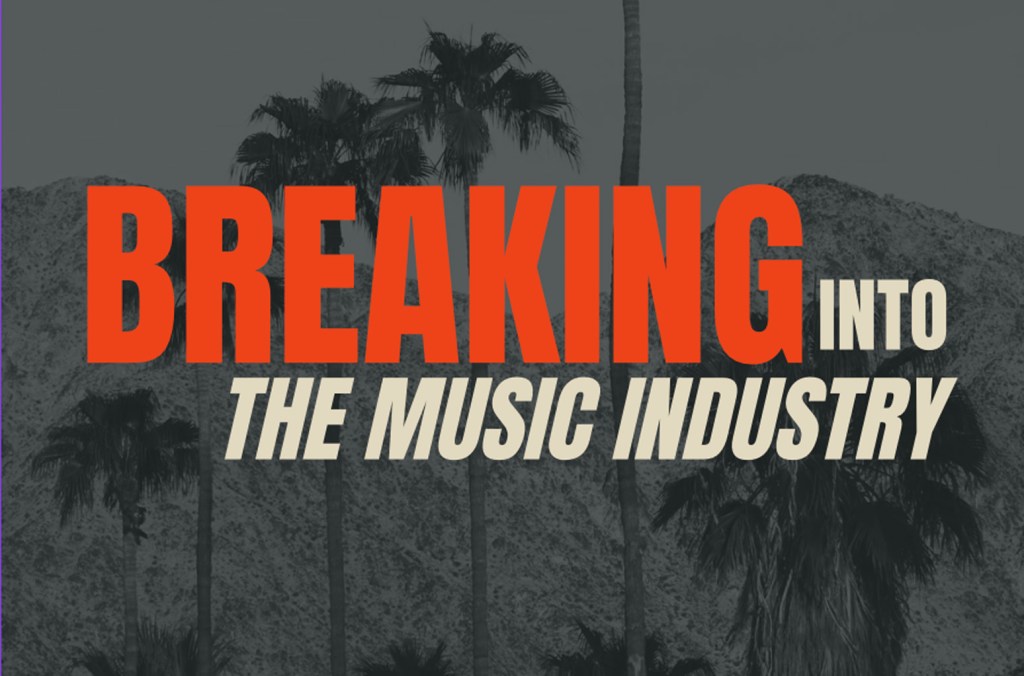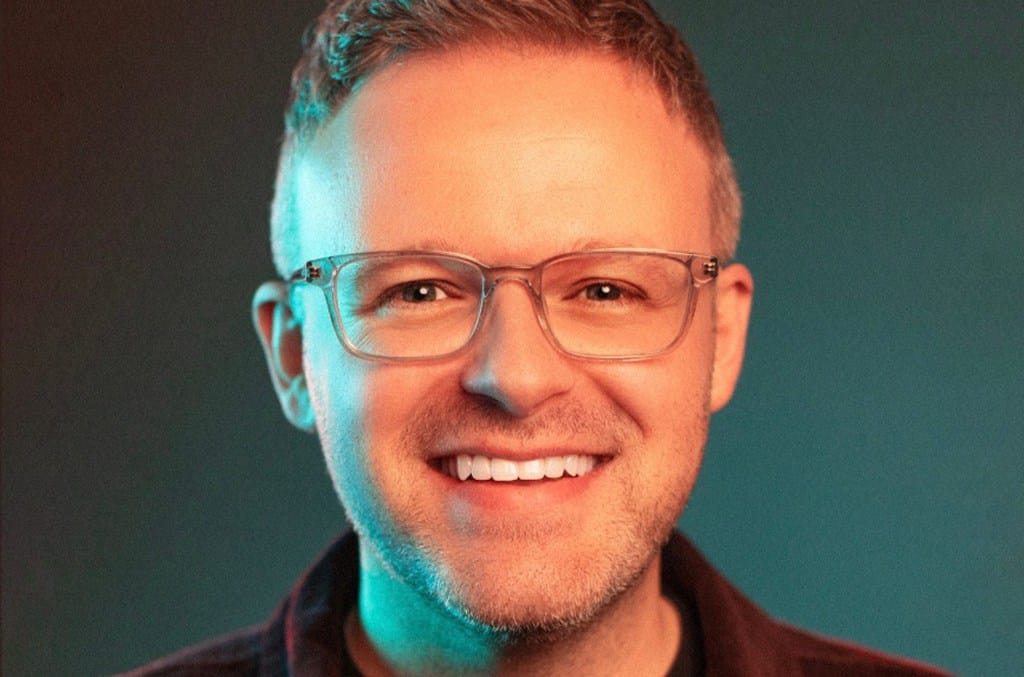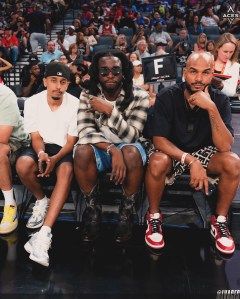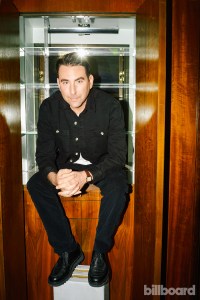Management
Page: 4
Singer-songwriter Ryan Hurd has signed with The Core Entertainment for management. The singer-songwriter will be managed by The Core Entertainment co-founders/CEOs Chief Zaruk and Simon Tikhman, as well as Brittani Johnson. The new management deal comes as Hurd gears up to release his sophomore album, the dozen-song Midwest Rock & Roll, on March 21 via […]
Lil Nas X has signed with Crush Management, joining a star-studded roster that includes Miley Cyrus, Green Day, Lorde and more, Billboard has confirmed. The firm’s other recent signings include Kesha, Labrinth and Orville Peck. The news was first reported by The Hollywood Reporter. Lil Nas was formerly managed by Adam Leber‘s Rebel Management. The […]
SYDNEY, Australia — Various Artists Management is now open for business in the land Down Under.
As VAM builds out its international footprint, the company establishes an office in Sydney. Leading the new affiliate is industry veteran Arwen Hunt, VAM’s head of Australia/New Zealand, with duties across the talent agency’s management, label and publishing activities. Hunt reports to CEO David Bianchi.
With the launch, VAM’s empire includes offices in London, Los Angeles and now Australia’s most populous city.
“After the successful opening of our L.A. office a few years back we decided upon further global expansions and Australia/New Zealand seemed like a logical next step, both in terms of the amount of business we have down there and its proximity and access to Asia,” comments Bianchi.
Trending on Billboard
In Hunt, VAM lands a talented international executive with a stellar CV.
Born in the U.K., Hunt entered the music industry as a 17-year-old and has soaked-up experience as an artist manager, A&R, music publisher, label manager, product manager and promoter.
“It took one meeting with Arwen to know that she was the person to run Various in Australia/New Zealand,” explains Bianchi. “Her management background with Catfish and the Bottlemen and Kate Nash was super-impressive. Mixed with her publishing background at Universal she is just perfect! We are so happy to welcome her to the global VAM Family”.
Most recently, Hunt served as vice president, creative / head of A&R for Universal Music Publishing Group Australia and New Zealand, signing and A&Ring such artists and writers such as PJ Harding, Ruel, Lime Cordiale, Idris Elba, DMA’S, Odette, Timmy Trumpet, Alex the Astronaut, Guy Sebastian, Jessica Mauboy, Gang of Youths, Vera Blue, The Chats, Styalz Fuego, Hiatus Kaiyote, CW Stoneking, D.N.A. and others.
Previously, she was as an artist manager and partner at ATC London, where she guided the careers of Catfish and the Bottlemen, Kate Nash, Augustines, Half Moon Run, Black Lips (U.K. & Europe), Tegan and Sara (U.K. & Europe), and more.
“If you’re lucky enough to find your tribe in this often brutal industry, you find a way to work together. That’s exactly what happened when I first sat down with the VAM team, and now, here we are,” Hunt comments in a statement, issued Jan. 30.
VAM’s team “not only have a knack for identifying incredible musical talent,” she continues, “they’re also astonishingly adept at handpicking the right people to grow VAM and the careers of their artists and writers.”
The team culture is “one that inspires and excites me more than any other I’ve encountered in my lifelong career, and exactly what working in music should be about: a shared vision and exuberant passion and belief in the art they represent; an incessant drive to kick down doors for their artists, clearing the path for them so they can progress; a team that fights together, grows together, celebrate wins together, and inspires and supports each other.”
The VAM roster includes Tom Grennan, Good Neighbours, Melanie C, Ashnikko, The Libertines, Supergrass, La Roux and Rose Gray.
Música mexicana hitmaker Gabito Ballesteros has signed with George Prajin‘s Double P Management, Billboard can announce. The 25-year-old artist and producer — known for co-writing corrido hits like “Lady Gaga” and “Presidente” — joins megastar Peso Pluma, Tito Double P and Santa Fe Klan on the company’s roster. “This has been an amazing journey so […]
Longtime rock and punk promoter John Reese and author and RockStar Marketing creator Craig Duswalt have joined forces to launch the Disrupt Artist Management Network (DAMN!), an artist management and event production platform that plans to launch a new podcast and educational event. That event, called Breaking Into The Music Industry, is a two-day conference […]
Artist manager Justin McIntosh has launched JTMC Entertainment, welcoming actress, singer and New York Times bestselling author Kristin Chenoweth to the roster. McIntosh will continue to work with singer, entertainer, author, actress and businesswoman Reba McEntire, whom he has represented since 2023. “2025 marks my 20-year anniversary of working in this business, and I am […]
These managers on the rise have helped the biggest breakout artists, songwriters and producers of the past year navigate major wins and milestones, from opening for superstars and selling out headlining arena shows to earning Grammy nods and topping the charts — with some even making history. Introducing: Billboard‘s 2025 class of Managers to Watch.
Abas Pauti, Jared Cotter
Ages: 27, 43Companies: American Dogwood, RangeKey clients: Shaboozey, Paul Russell
“It wasn’t until I met Shaboozey where the thought of artist management became a serious career aspiration for me,” says Pauti, noting that the chart-topping artist gave him “confidence” to succeed in the role. As for Cotter, after entering the industry as a songwriter, he soon became “disenchanted, but still wanted to be a champion for artists.” Together, Pauti and Cotter have helped Shaboozey and Russell deliver breakout hits with the former’s record-tying 19-week Billboard Hot 100 No. 1 smash, “A Bar Song (Tipsy),” and the latter’s viral hit “Lil Boo Thang.” Pauti says, “To know I played a role in helping both my clients get their records heard and loved from people across the globe will always be my greatest success.”
Trending on Billboard
Abas Pauti, Shaboozey and Jared Cotter
Allan Pimenta
Alex Lunt
Age: 31Company: Type A ManagementKey clients: Dasha, Beauty School Dropout, Dalton Davis, Anthony Ortiz
Since starting his management career a decade ago, Lunt has learned that “it is crucial to surround yourself with knowledgeable colleagues you can trust.” Last year, that approach paid off with country newcomer Dasha, who celebrated a trio of firsts: debuting on the Hot 100 with her viral hit “Austin,” performing at the CMT Awards in April 2024 and to a packed stadium at CMA Fest in June. Lunt says, “The best feeling has not been any accolade, but celebrating the success with a group of incredibly talented and passionate people.”
Alex Lunt and Dasha
Courtesy Alex Lunt
Amy Davidson
Age: 30Company: Volara ManagementKey clients: Sabrina Carpenter, Marina Diamandis, RIAH
Davidson has worked alongside Volara founder Janelle Lopez Genzink from day one, but, as Davidson says, the past 12 months in particular “have been nothing short of a fever dream as we’ve effectively checked off almost every item on our collective bucket lists.” Such items included Sabrina Carpenter scoring her first Hot 100 chart-topper with “Please Please Please” (while “Taste” and “Espresso” hit Nos. 2 and 3, respectively) and first Billboard 200 No. 1 album, Short n’ Sweet; an arena tour; a Saturday Night Live performance; and six Grammy nominations. Plus, Volara celebrated signing Marina Diamandis to its roster. “Effective management starts at the core of why you are there in the first place: to listen and respond to an artist’s needs,” Davidson says. “Understanding that an artist is a person with life happening outside of work is key for me.”
Janelle Lopez Genzink, Sabrina Carpenter and Amy Davidson
Christopher Polk for Variety
Christina Li, Michael Lewis
Ages: 29, 29Company: Nonstop ManagementKey clients: JKash, Michael Pollack, Ali Tamposi, Jake Torrey
Li says working as an assistant to hit-maker JKash “was a crash course in the music industry,” while Lewis feels “incredibly fortunate to call [him] a mentor.” The two also count Nonstop founder Jaime Zeluck Hindlin and president Bianca Minniti-Bean for being instrumental in their careers so far, guiding them through a major 2024 that kicked off with Michael Pollack winning his first Grammy: record of the year, for co-writing Miley Cyrus’ “Flowers.” Other highlights included Pollack and Ali Tamposi co-writing two original songs with Maren Morris for animated film The Wild Robot and Jake Torrey co-writing Marshmello and Kane Brown’s “Miles on It,” which made history as the first single to enter the top five on both Hot Dance/Electronic Songs (No. 1) and Hot Country Songs (No. 4).
From left: Christina Li, Michael Pollack and Mikey Lewis.
Jaynie Karp
Christopher Milano
Age: n/aCompany: The Vision ManagementKey clients: 4Batz, Bear Bailey, Guwop Reign
Milano “learned the ups and downs” of music management after meeting Akon and his brother Bu Thiam through the Bay Area’s “underground scene.” So when he met R&B singer 4Batz in 2023, he says, “opportunity met preparation.” In 2024, the pair celebrated a breakout year as the artist debuted across several Billboard charts — including the Hot 100, Hot R&B Songs and Rhythmic Airplay — with “Act ii: date @ 8,” which featured Drake on the remix. “We preach artist development at The Vision, and young artists who blow up fast don’t usually understand that process,” Milano says. “So it’s important to not only sign talented artists, but someone who’s willing to listen and wants to learn.”
Christopher Milano and 4Batz
Maurice Tyrone Holloway
Haley Evans
Age: 27Company: Mega HouseKey clients Peter Fenn, Casey Smith, Caroline Pennell, Mon Rovîa
While attending the University of California, Los Angeles, Evans spent Friday nights working at Ricky Reed’s Nice Life studio. “[I] became incredibly inspired by the way Ricky built intricate worlds with the artists he worked with while simultaneously building his own businesses,” Evans says. She continued to “learn from the best,” including Mega House co-founders David Silberstein and Jeremy Levin, who hired her in 2020. In March 2024, Evans was promoted to president as her client Peter Fenn celebrated the success of Myles Smith’s “Stargazing,” which hit No. 1 on the Rock & Alternative Airplay chart in December. “With new artists breaking online every day, the biggest challenge for songwriter-producer managers is helping guide clients to choose the right projects to focus their time and energy on,” she says. “Other than that, it’s getting our clients fairly compensated for their work — songwriters especially.”
Haley Evans and Peter Fenn
Olivia McDowell
Hayley Corbett
Age: 28Company: Punchbowl EntertainmentKey clients: Megan Moroney, Kristian Bush
At 15, Corbett started working with the Grammy Foundation as a volunteer, “networking as much as possible in New York and L.A., which is where I first became aware of artist management as a career,” she says. That commitment more than prepared her for Megan Moroney’s takeoff, which in 2024 included opening stadiums for Kenny Chesney and winning the Academy of Country Music Award for best new female artist of the year and the Country Music Association Award for new artist of the year. “One key to managing effectively is being intuitive to your clients’ needs, wants and dreams while being able to implement strategy that allows for continued growth,” Corbett says. “The biggest challenge for managers is avoiding burnout and oversaturation.”
Megan Moroney and Hayley Corbett
Mason Goodson
Holt Harmon, Parker Cohen
Ages: 31, 30Company: MetatoneKey clients: John Summit, Layton Giordani, Max Styler, Ranger Trucco
After a couple of years working in the label sector of the industry, Harmon was craving a longer-term partnership with artists. Similarly, Cohen “hit a ceiling of my own” on the events side of the business. “I wanted to work on building projects from the ground up,” he says. “Artist management quickly became the no-brainer to satisfy those needs.” They accomplished that goal with the success of John Summit, from releasing his debut album, Comfort in Chaos (which peaked at No. 2 on Top Dance/Electronic Albums), to his sold-out performances at New York’s Madison Square Garden and the Kia Forum in L.A. “One of the most valuable things we’ve learned along the way is that we are not the artist,” Harmon says. “It is not our project or vision, ultimately, and instead of trying to make it ours, we’ve placed our focus into being the best catalysts possible for them.”
From left: Holt Harmon, John Summit and Parker Cohen.
Ethan Garland
Jacob Epstein
Age: 34Company: Lighthouse Management & MediaKey clients: H.E.R., Towa Bird, Petra Collins
From a young age, Epstein was “obsessed” with both music and film — his management roster also includes Paul Rudd — yet as he puts it, “I knew I didn’t want to be the star. I wanted to be the engine and person breaking down the doors for those artists and guiding and architecting those creative decisions.” Today, he says even the smallest wins make him as proud as his artists’ biggest moments, which most recently include rocker Towa Bird capping off 2024 by opening at Los Angeles’ Kia Forum for Billie Eilish. “Only do this job if you truly are passionate about art and culture,” he cautions. “It’s too difficult if that love for it isn’t there.”
Jacob Epstein and Towa Bird
Alex Fleck
Jeff Burns
Age: 35Company: Reynolds MGMTKey client: Benson Boone
For Burns, the best part of Benson Boone’s breakout year has been “watching [him] love his career… He’s funnier, can sing and backflip better, is nicer and more humble than everyone — he has it all.” Such assets have helped Boone score a No. 2 hit on the Hot 100 with “Beautiful Things” and a Grammy nod for best new artist. For Burns, it’s all about not getting lost in the “million little things” and focusing on what matters most: “making the best music, marketing it better than anyone else, doing the best shows and staying happy and healthy.”
Jeff Burns and Benson Boone
Kevin Mazur/Getty Images
Justin Greenberg, Joe Izzi
Ages: 32, 38Company: Ocean AvenueKey client: Addison Rae
Three years ago, Greenberg and Izzi, along with their partner and Ocean Avenue co-founder, Sharon Jackson, left WME for management, launching with a roster that includes multihyphenate Addison Rae. Her 2024 single “Diet Pepsi” marked her major-label debut on Columbia and became her first Hot 100 entry; earlier in the year, Rae teamed with Charli xcx on a remix of “Von Dutch.” Greenberg and Izzi believe having “a deep understanding of your artists’ vision” is key to cutting through. “It’s not about us — we’re just here to make it happen.”
Lucas Barbosa
Age: 30Company: Habibi ManagementKey clients: Grupo Frontera, Mora, Tommy Torres
As a 17-year-old in Colombia, Barbosa helped an artist friend with “various tasks” before becoming his full-time manager; later, he launched his own company dedicated to producers and songwriters, who scored placements with Eladio Carrión, Maluma and Anitta. “That gave me the opportunity to expand my network,” Barbosa says. Now he’s helping his artists expand their fan bases, including Grupo Frontera, which toured arenas across the United States and Mexico last year. “We’ve taken the time as a company to build [our artists] from the ground up, ensuring that every step of the way is intentional and aligned with their artistic vision,” Barbosa says.
Lucas Barbosa (middle) with Alberto Acosta (left) and Juan Javier Cantú of Grupo Frontera.
Phraa
Luke Conway
Age: 29Company: Trade Secrets MGMTKey clients: Teddy Swims, Lø Spirit, Father of Peace
“I’ve always wanted to be involved in music one way or another,” says Conway, who spent high school in the metal and rock scenes, making merchandise for bands, directing music videos and planning DIY tours. His first management gig helped him “self-educate on every aspect of this business,” which today has helped him guide Teddy Swims through his breakout year. After “Lose Control” topped the Hot 100 in March 2024, the smash hit finished at No. 1 on Billboard’s year-end Hot 100 Songs chart. Conway says, “This year has been a nonstop roller coaster, but everyone on the team has stepped up and delivered at a superstar level.”
Teddy Swims and Luke Conway
Bryce Hall
Mariana López Crespo
Age: 27Company: 1k DojoKey clients: Young Miko, Mauro
“To be honest, I never imagined I’d be involved as a manager in the music industry,” López Crespo says. “The opportunity came from acknowledging the potential around me and gaining confidence to develop it.” That combination has led to a major year for urbano star Young Miko, who started 2024 with her now-Grammy-nominated debut album, att. (which debuted at No. 9 on Top Latin Albums, her first entry on any Billboard albums chart), and in the spring made her Coachella debut following a sold-out U.S. tour. “However,” López Crespo says, “being able to build a solid team around creatives in Puerto Rico and providing them the resources to keep developing on a bigger scale has been the biggest blessing and main reason to keep working toward success.”
Young Miko and Mariana López Crespo
Christopher Polk for Variety
Max Gredinger
Age: 33Company: Foundations Artist ManagementKey clients: Laufey, mxmtoon, rainbolt, Ricky Montgomery
Inspired by managers Scooter Braun and Dan Weisman, Gredinger started managing acts as a high school student “and never stopped,” he says. In 2023, he was named partner at Foundations, and the following year, he and Laufey experienced a string of wins — he’s most proud, however, of her August performance at The Hollywood Bowl with the Los Angeles Philharmonic, which was released as a concert film in IMAX theaters worldwide. “Her ambition and goal of bringing classical and jazz music into the mainstream, and seeing that manifest in front of 17,000 people in her adopted home market and then in theaters, was unforgettable,” he says.
Laufey and Max Gredinger
Junia Lin
Maytav Koter
Age: 32Company: Good CompanyKey clients: Hayley Gene Penner, Buddy Ross, Andrew Sarlo, Spencer Stewart
After starting her career in publishing working for Justin Shukat at Primary Wave, Koter “discovered my passion for the songwriting community.” In 2019, she launched her own company “rooted in empathy and a long-term approach… I set out to create a family.” Last year, she joined client Buddy Ross at the Ivor Novello Awards, where he was nominated for his work on Fred again.. and Brian Eno’s track “Enough.” “I am deeply invested in [my clients’] lives beyond their careers,” Koter says, “which allows for more trust and transparency in our business relationship.”
From left: Spencer Stewart, Buddy Ross, Hayley Gene Penner (in front), Maytav Koter, Andrew Sarlo and Mona Khoshoi.
Kendra Hope
Nick Bobetsky
Age: 44Company: State of the ArtKey clients: LP, Livingston, Em Beihold, Debbii Dawson (Previously: Chappell Roan)
Bobetsky enjoyed a front-row seat for former client Chappell Roan’s rise, which he calls “a huge success not just because of the size it grew to, but because of how we did it differently with strategy that isn’t customary to the mainstream music business. It also helped that she’s a one-of-a-kind, generational artist.” After releasing her debut, The Rise and Fall of a Midwest Princess, in 2023, the album grew into a Billboard 200 top 10 mainstay while 2024 single “Good Luck, Babe!” became her biggest hit, climbing to No. 4 on the Hot 100 and scoring two of her six Grammy nods, for record and song of the year. Meanwhile, Dawson scored a breakout hit with “Turn the TV On” and opened on tour for Orville Peck. As Bobetsky says, “Patience is key to getting it right on an artist’s own terms.”
Debbii Dawson (left) and Nick Bobetsky
Ruby Anton
Sam French
Age: 34Company: Mixed ManagementKey clients: Ian, Jasper Harris, bülow, Henry Kwapis
While working in publishing at APG, French “fell in love with the process of connecting writers and producers with artists and having a front-row seat to watching big records come together.” In 2022, he became a partner at Mixed and has since watched that play out time and time again. In 2024, songwriter-producer Jasper Harris worked on Camila Cabello’s C,XOXO, Charli xcx’s brat and more. Meanwhile, newcomer rapper Ian’s “Magic Johnson,” which peaked at No. 1 on the Bubbling Under Hot 100, was among the U.S. Top 10 TikTok Songs of 2024. “There’s a lot of noise right now, and it’s very loud,” French says. “Focus on what you can control and what you believe in.”
Sarah (Muise) Scardilli
Age: 35Company: Muise ManagementKey clients: Shygirl, COBRAH
While studying international business, Scardilli says she “spent 75% of my time partying across the U.K. and making friends with DJs and promoters.” After college, she landed a job with a Bristol, England-based management firm as its first full-time employee: “I was given responsibilities very early on — jetted to Ibiza two days after my first day at work, and the rest is history.” She formed Muise Management in 2019 and watched her artists reach new heights last year, as Shygirl was an opener on Charli xcx and Troye Sivan’s Sweat Tour and COBRAH’s “Brand New Bitch” scored a key synch in Kinds of Kindness. Scardilli describes the latter as “a powerful moment where underground club culture met mainstream audiences.”
Sarah (Muise) Scardilli with Shygirl (left) and COBRAH (right).
Courtesy Shygirl; Axel Ahlgren
Stephen Timothy Nana
Age: 37Company: n/aKey client: Asake
While Asake’s third album, Lungu Boy, spawned the chart-topping “Active,” featuring Travis Scott (which topped Billboard U.S. Afrobeats Songs), Nana considers Asake’s arena tour, which included stops at London’s O2 Arena and New York’s Madison Square Garden, their biggest success of 2024. “Not because of output, but because of the work ethic and ability of Asake to stay focused, determined and disciplined,” Nana says. “It’s not every day you get creatives who have achieved so much and still be human.”
This story appears in the Jan. 11, 2025, issue of Billboard.
There’s definitely been moments where I wished I could be in two places at the same time,” says Brandon Creed, reflecting on a year filled with culture-defining moments across his company’s roster. He’s gotten close — in early March, he had to be on separate coasts within 48 hours.
On March 8, Ariana Grande released her critically praised seventh album, Eternal Sunshine. On March 9, she was the musical guest on Saturday Night Live in New York — Creed was there. On March 10, Grande presented an Oscar at the 96th annual Academy Awards in Los Angeles, where client Mark Ronson was also performing in the night’s biggest spectacle: a star-studded live debut of Ryan Gosling’s Barbie song “I’m Just Ken” — Creed was there, too.
“It was definitely a tiring weekend,” says Creed, 47. “Thankfully, I think my relationship with all my artists is such that we have a great team so they’re always supported wherever they are.”
Trending on Billboard
His Good World team is a tight-knit group of savvy managers — including Dani Russin and Tyler Reymore, both of whom have been by his side for over a decade, along with Anika Capozza, Chris Pepe and Emma Anderson (among others). In 2023, when Creed left his position at Full Stop, the superstar management firm his own Creed Company merged with in 2017, his crew followed. After six years, Creed craved the kind of company he had launched his management career with when he had founded Creed Company in 2010 and set out to create the newer, more matured version of exactly that.
In August 2023, Creed established Good World Management with a high-profile roster including Charli xcx (co-managed with Sam Pringle and Twiggy Rowley), Troye Sivan, Ronson and Tame Impala (co-managed with Jodie Regan). His first new signing was Demi Lovato, followed by Grande.
“I was excited by the challenge of it, honestly,” he says of launching a new venture. “Creed Company was born out of [necessity] — I was an executive at a record company and started managing on the side.” With Good World, Creed has much more experience, but the same drive. “We’re trying to keep it familial and small and build accordingly, based on what we need.”
Creed got his start in the industry as music executive Tom Corson’s assistant before becoming one of the first employees of Clive Davis’ J Records, which he describes as “like going to grad school.” From there, he says, “management found me” when he met Bruno Mars and his writing partner, Philip Lawrence. “I watched Clive launch Alicia Keys and position superstars,” Creed says. “What he did and what he looked for, I took it and applied it as best I could.”
Since its beginning, Good World has celebrated one industry-rattling moment after another, from Charli graduating to arena headliner with her and Sivan’s in-demand Sweat Tour to Grande conquering new territory with Wicked. Such year-defining victories have helped Creed and Good World earn Billboard’s first Manager of the Year honor. Here, he and his team reflect on what Creed calls “the longest fastest year.”
Joel Barhamand
When you think back to launching Good World, what stands out?
Brandon Creed: We were in the midst of Barbie summer with Mark, and that was an amazing experience. And Troye had just [released the single] “Rush.”
Dani Russin: It was a show-must-go-on sort of thing. We didn’t have the luxury of pausing. We were grateful that essentially our whole roster came with us, so we just had to keep working. This was a really welcomed exclamation point on the summer.
Anika Capozza: We’ve always been really small and mighty, so when we moved over here, it was all hands on deck on every level. Like, “What snacks are we getting?” Things that you don’t think about at a big company when you walk in and everything is all set up. But it made it fun.
Tyler Reymore: Coming back into a house and it feeling so warm and cozy and down to earth, you take a big breath. That was what Creed Company was years ago.
Russin: In a lot of ways, it feels like we were getting back to how we started.
Dani, you’ve worked with Brandon the longest, since 2009. What drew you to his management style?
Russin: Brandon is very keen. He can read people, he’s a great decision-maker, and he has a very diplomatic management style. In this office, and in every office we’ve worked in, it’s definitely like good ideas can come from anywhere. We’ve always fostered an environment where we promote within. And we don’t really have ranks, but to the extent that we do, it’s been somebody that’s interned with us.
Chris Pepe: I’d actually left management for a bit and was the one person who didn’t come along, and I always looked from afar like, “If I were to ever get back into management, this is the team I’d want to be on.” There’s a lot of trust here.
Capozza: I started as a receptionist and then was an assistant and then a manager, and I’ve really been with Brandon my entire career in the music industry. What drew me the most is it didn’t feel like there was ever a ceiling for any of us. He allows us the ability to grow and take charge and be assertive and have a presence in the room.
Emma Anderson: I started as his assistant and always felt like he trusted me, so that gave me confidence. When we were leaving Full Stop, a lot of my friends were like, “This is a huge risk.” And I was like, “Not really.” I never have felt like I’ve been put in a box here.
Reymore: Brandon has always exuded such a quiet confidence, and it’s something I’ve always admired. When I first started working with him at Creed Company, he was in the living room with the other managers. It makes you want to work harder for someone who really values and sees you peer to peer.
You named the company Good World. What’s a moment this year where, commercial success aside, you felt the positive impact?
All: Sweat.
Creed: It was a scary proposition at first because it’s two of our artists; if it doesn’t go right, that’s high stakes. But they have so much respect for each other, they wanted to build and create something really unique. They dove in and did that.
Russin: Brandon had the idea for Sweat, and it was definitely like, “Avengers, assemble…”
Creed: With some resistance. It took us a while…
Russin: Listen, you said it, not me.
Where was the resistance coming from?
Creed: It was an idea over the last few years [that] just never lined up. And then when we were planning Troye’s tour and talking about Charli’s, we pitched it and…
Russin: It was now or never.
Creed: And there was a lot of blind faith. Each artist questioned whether it was the right thing for them to do in this moment, and rightfully so. We had to move some things and plotted it out and gave the tour time to sell and then everything kicked in with Brat Summer, and it really took off.
Russin: And then how that impacted in the real world, when we would go to these shows and watch [our] friends, their friends, the wider industry enjoy themselves…
Pepe: I remember that video you sent in our group chat. The lights were on after the show ended and the energy on the floor of the crowd beaming, dancing, still having a party. It was one of those “Oh, this is why we do this” moments.
Creed: That’s another thread, and it might be corny, but there is so much positivity and light, especially now when we really need it. It’s an honor to help get that into the world. I mean, Mark on the Oscars. I remember Steven Spielberg walking into the room after and he was like, “I’ve never seen anything like that on this stage.”
How has it felt to watch Charli enjoy her biggest year?
Creed: We’ve been working with Charli since 2018. I remember going to see her at a rave in London and it was like a smack in the face. It was coming off the Pop 2 era, and then we went right into the Charli phase. But to see her grow, it’s so gratifying — and slightly vindicating, just because we knew it. To see the world jump in on this has been a career highlight for me because she deserves it, and to be doing it so unapologetically is just incredible.
Ariana Grande also had a major 2024. When you start working with an artist who is already a superstar, how do you find your rhythm?
Creed: We definitely hold and make space for that. We’re not [a company that’s] going to come in and be like, “This is how we do it,” and change everything. Right before [signing Grande] we had just signed Demi [Lovato], another huge artist that has been around for a long time with a lot of success. It’s really turning on the empath and figuring out how they work and how you fit in and just watching and learning. And Ariana had an existing team around her: Justin Adams, Ray Rock and Grace Segundo. I just fit myself in there and took cues from her and them and we got into a rhythm, but it takes a minute.
Will Good World sign more talent?
Creed: We are extremely discerning with any artists at this stage. We have room, don’t get me wrong, for the right thing, and we would build accordingly. I think the developing-artist space is extremely challenging right now, especially for managers. Especially for a young manager, it’s hard to make money. So our focus is definitely on the more established artists and ones that have built an audience. But, you know, there are no rules.
Would you sign actors to the roster?
Creed: I would absolutely be interested in that. It’s about the person. It’s about being inspired by what they want to do. What we love is all of our artists want to do more than be an artist. Most of them act; Mark is scoring soundtracks and writing a book. [Ariana] got a Golden Globe nomination. That [was] amazing to see her get recognized. Troye and Demi have their own acting credits. I do particularly love the film and TV space. Charli’s pursuing that with a lot of success right now. That is exciting and inspiring to me, getting to be in all these different scenarios.
How do you prepare an artist, and yourselves, for their biggest year?
Russin: We have an extreme amount of patience when it comes to not skipping steps and [having the] “This could take 10 years” conversation. We’re prepared for that. And I don’t know that we feel that there’s as much gratification in the instant moment. We really try to set things up so that we’re building the road to get there along the way. So when it comes, they’ve done their 10,000 hours — as have we.
What challenges do managers face today?
Creed: It’s really hard for young managers. Artists are looking around at what others have and what others are doing, and they’re under a tremendous amount of pressure themselves. So when they feel that, they put the pressure on their person that’s right there — and that’s their manager. So I do think malleability is important and understanding how to shape teams around each artist and support them. And [more] humility and less ego is important.
Pepe: I work across Demi and she’s working on her album right now, and a key thing of our process has been allowing her to take that time that she needed and even encouraging it, because she is used to an industry that wants more and more and more. Encouraging that patience and investment in art, that has been honored this year in a big way after the pendulum swing of TikTok short form.
Creed: Impatience is a real challenge. One of our biggest challenges as well is the toxicity of fandom now. I feel like half the time we are being told how to do our jobs by [social media], and that is an exercise of our patience because our artists are also seeing it — not saying they react to it, but it’s a challenge across the board.
Russin: The sense of ownership over an artist’s body, their being…
Creed: Their decisions… Look, we are grateful for the fans; that’s why we’re all here. But there are boundaries that I think get broken quite often.
What would you tell someone wanting to enter artist management?
Russin: The barrier of entry is actually quite fuzzy. If you want to be a manager, you manage somebody. I’m not saying you’re a good manager… It’s a lot of head down, fly on the wall, behind the scenes, unglamorous, ungratifying work at first. If you don’t have a desire to be of service, this is probably not the area for you.
Reymore: As long as you are focusing on supporting artists and music that you care so deeply about, that’s going to make the late nights and the weekends feel like joy.
Pepe: [Get] as much hands-on experience as you can, even if it’s an artist that is local to your community, especially if you’re talking about someone in high school or college who’s wanting to do this. I didn’t have any connections. I started by working at CAA, and that led me to meeting managers, and that led me to my first management job. Our mindsets these days are quick payoffs. But it’s a lot like, “What are the first things you can do to get to where you want to be?”
Capozza: It’s the same philosophy we use for artists, I’m realizing: not skipping steps.
Creed: I was an intern, I was an assistant. I say this to every intern that comes here: Cultivate relationships with your peers because that’s who you’re going to grow up in the business with. They’re the ones that will be head of the label one day or whatever direction the person goes.
Russin: The assistant mafia… Don’t burn bridges, because everyone sticks around.
Creed: It is real, and you don’t think that when you’re trying to get into the business. You think you got to get to the top man or woman, but it’s really the support group that is going to let you enter — or you find a genius artist and grab on.
Capozza: I remember you saying that when I started: Don’t look up. Look around you.
Looking ahead, what goals do you have for yourself and the company?
Creed: Ariana’s [year] is pretty mapped out. We know where she is going to be and what she’s going to be doing for the majority of the year. Same with Charli; Brat Summer, Fall, Winter is going to continue. Troye is going to be in a creative year, hopefully making his next record. We’re in the planning stages for Tame Impala. Demi hopefully will be starting her next era midway through the year. Mark’s going to hopefully kick off a new artist era; hopefully the book he’s been writing will come out. Nothing is planned, but everyone’s going to be busy. And then we’ll map out 2026… The goal is to continue doing what we’re doing. I’ve been really fortunate to have a breadth of experiences over the years with such incredible artists and artistry and moments in time — that makes it fun. And there’s been times where it hasn’t been fun and I’m like, “Maybe I need to do something else.” And then something clicks and I get reengaged, and that’s what’s happened this year.
This story appears in the Jan. 11, 2025, issue of Billboard.
SALXCO, the artist management company founded by Wassim “Sal” Slaiby that’s home to The Weeknd, Metro Boomin and more, has named a new CEO and new co-presidents, the company announced on Friday (Dec. 27). Stepping into the CEO role is Lindsay Unwin, a longtime employee of the company, while the new co-presidents are Manny Dion […]

 State Champ Radio
State Champ Radio 


